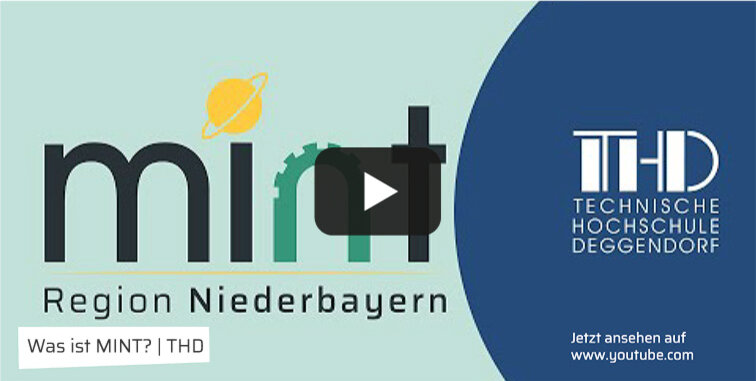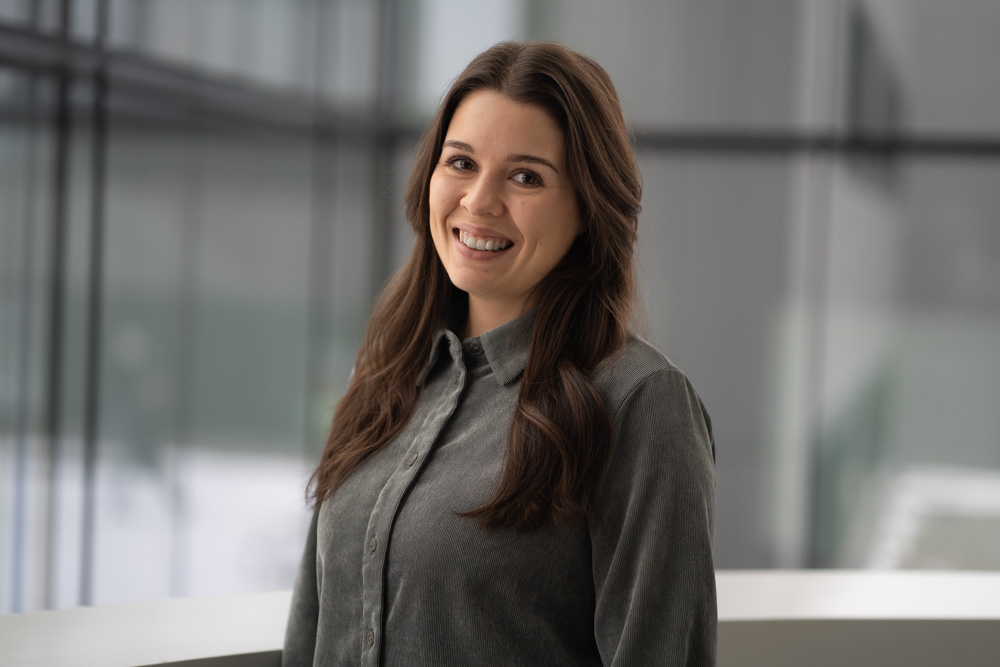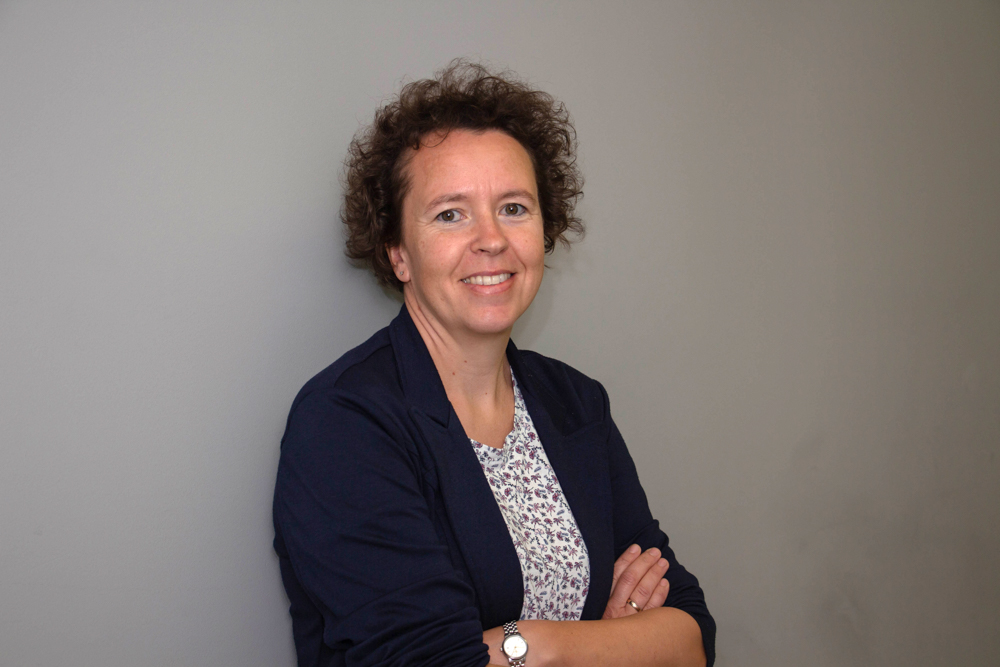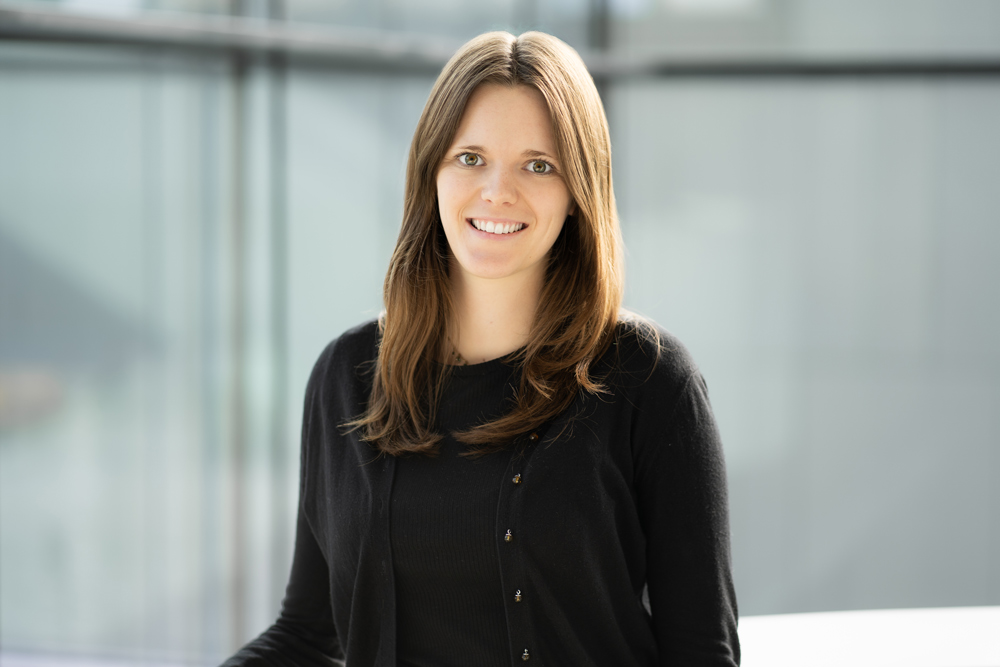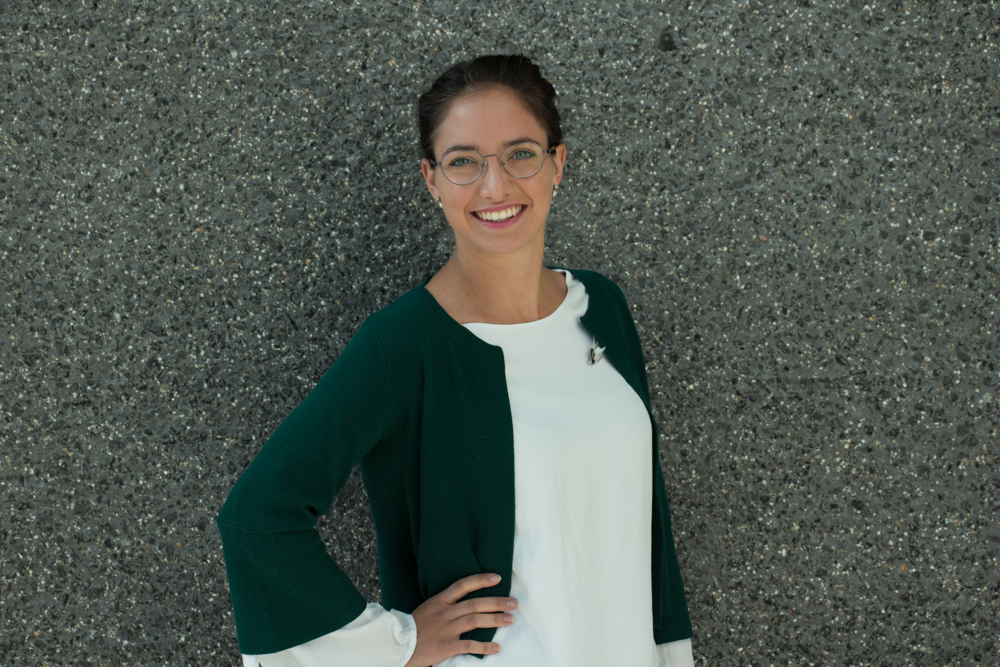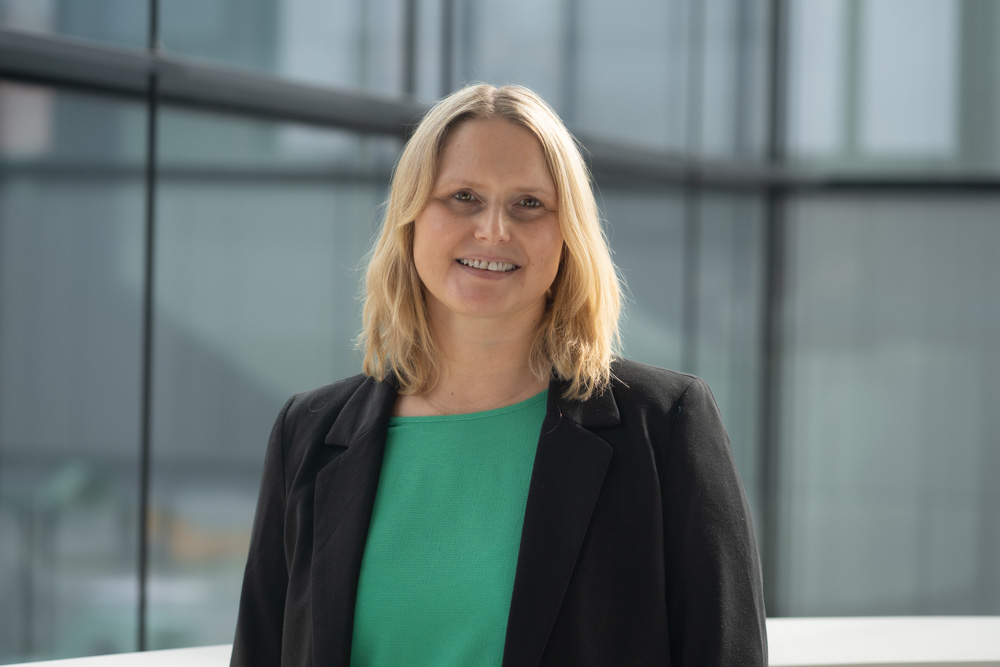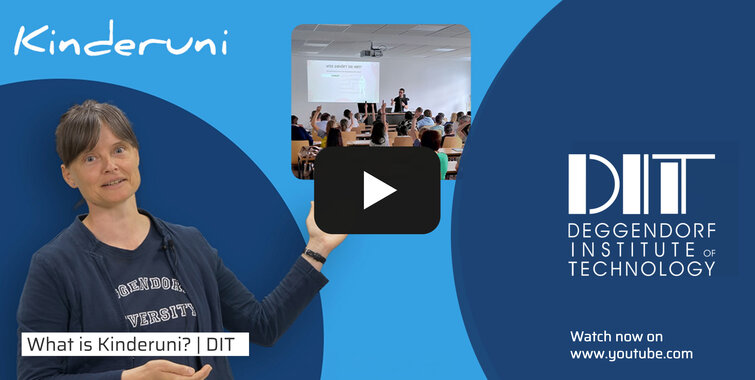Study at DIT
Pioneering & Vibrant
STEM - Network
STEM - Mathematics, Computer Science, Natural Sciences, Technology
All Offers for School (PDF in German)
STEM Offers (PDF in German)
Wether in the display of a mobile phone, in the production of light, in the construction of sustainable houses, in environmental protection, in medicine, in the Internet... How does the world around us work and how can we shape it? STEM enlightens!
Our Prospective Student Advisors advise prospective students and applicants on all questions relating to studying and university life.
You will receive comprehensive, objective and confidential advice on the following topics:
- Choice and orientation of studies
- Support and inital advice on all aspects of studying
- University admission without Abitur
- Transition from Bachelor to Master
- Subject changes and study alternatives
What we offer:
- Bionics school visits
- Parents' consultation
- Researchers Camp
- Early study
- Girls' Day
- Girls' Day Academy
- Boys' Day
- Informatics school visits
- Children's university
- Teacher training
- Women in STEM
- TASTING
- TechHols
- Company visits
- Scientific-technical upper school
School Visits
We're visiting your school!
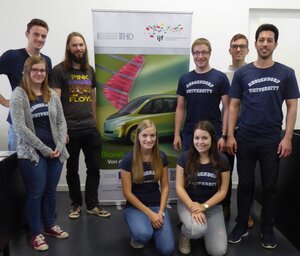 |
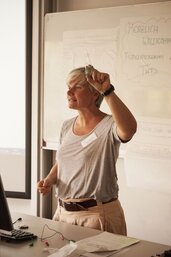 |
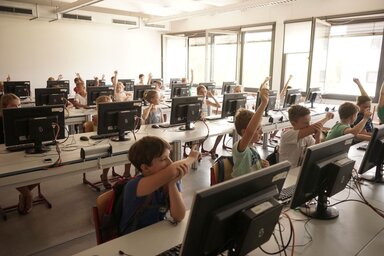 |
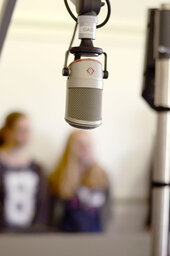 |
bionics school visits - computer science school Visits - electrical school visits - individual school visits - rent a prof
Bionics School Visits
how does a gecko manage to run up the walls or
the lotus flower to let water drops roll off it?
With a lively lecture and two suitcases full of experiments, students at DIT will introduce pupils from 5th to 7th grade to the topic of bionics. Bionics - What are you looking for in nature to make it useful for humas? The school visit is carried out in cooperation with the Initiative Junger Forscherinnen und Forscher e.V. Würzburg. It is free of charge, designed for four school classes and designed for four teaching hours (plus assembly and disassembly before and after). Further information is available in this detailed report of the project.
Informatics School Visits
use our exciting workshops (virtual & in person) for your school
Creative tinkering in a team - in short: "hacking" - is the focus of Make Your School. As part of the project, two to three-day hackdays are held at schools. Pupils think about how they can help shape their school and make it even better. With the help of technical and digital tools, and with the support of experts in computer science, design and mechanical engineering, they develop prototypes and present them to the press and the school public.
Electronic school visits
what is a capacitor?
how does a circuit work?
Join our students Jakob and Sepp in the electrical lab of the EMT Faculty!
They give you a 2h electrical taster day and a campus tour.
Individual Visits with your Class at DIT
do you have your own ideas?
we are looking forward to your message!
We offer customised school visit programs, individually adapted to the needs of your class. The duration of our school visits depends on the desired program content and can vary from the duration of a lecture block to the organisiation of an entire day at DIT.
Rent a Prof
45-90 minutes hands-on science
virtual or on site
get in touch!
![]()
Kinderuni
here we go! welcome to our children's University (Kinderuni).
Are you curious and have lots of questions? Are you between 6 and 12 years old? Then you've come to the right place: every school year we have exciting topics at the Kinderuni. As the children's university takes place in German, make sure to check out our German website for the next events and the programme.
What is Kinderuni?
![]()
Girls'Day & Girl's Day Academy
100 schoolgirls, not only from schools in the region, but from all over Germany, took part in Girls'Day 2021 at the Deggendorf Institute of Technology!
This year, technicians and teachers from the university offered varied virtual workshops that gave the girls the opportunity to experience "STEM at first hand" despite the distance. DIT campus was also explored as part of a virtual campus tour. Two female students from the Deggendorf Institute of Technology were on hand with materials for the girls.
- The Faculty of Civil and Environmental Engineering showed how to build bridges out of paper like a real engineer.
- Those interested in natural sciences gained insights into the field of optics in a spectromenter workshop.
- The university's technology campuses also showed interesting hands-on programmes. TC Cham introduced schoolgirld to the world of 3D printing. And at TC Teisnach, one could experience a day as a physicist and precision optician.
You can find more information at:
Girls' groups between 7th and 10th grade can spend a whole or half day at DIT within the framework of a Girls'Day Academy at their school. We offer exciting lectures, laboratory tours and experiments.
Here you can find more information about the Girls'Day Academy.
Reports:
GDA of the secondary school Landau 2018
GDA of the secondary school Landau 2017
GDA of the secondary school Grafenau 2017
The STEM team will answer all your questions via: mint@th-deg.de
Boys'Day
![]()
Students Inform School Pupils
As part of our school support programme, students visit schools and provide school children with age-appropriate information about study and career orientation:
- They report about their own experience on their degree course
- They advise about the application process
- They help in with guidance
- They support with any work experience
Our students give lectures and take part in school information fairs.
TechHols
We offer holiday programmes during the German holidays for children and pupils. These seminars focus on technical subjects like 3D printing, programming and computer science in cooperation with our STEM team.
Teacher Training
our stem promotion offers interesting teacher training courses on technical and scientific topics.
just ask us!
- 13 February 2020: Physics supervisor conference (for high schools) at DIT
- 23 January 2019: Computer Science Supervisor Conference (for grammar schools) at DIT
- 10 December 2018: Report training App Inventor and LEGO Mindstorms
- 12 March 2018: Report on Advanced training Lightweight Construction IJF
- 28 November 2018: Report on advanced training for enthusiasm for technology in kindergarten and elementary school
- 4 October 2018: Nanotechnology
- 13 June 2018: Research at the Technology User Centre Spiegelau
- 13 March 2018: "Lego-Mindstorms and App-Inventor - Tools for my School"
- 18 October 2017: "OLED and Grätzel cells: curriculum-relevant examples of modern technologies".
- 28 November 2016: "STEM Opportunities at the Deggendorf Institute of Technology" (Job descriptions to the engineering science courses of DIT, transition from school to university in the fields of mathematics and physics)
- 10 November 2016: "Bionic Materials"
- 27 November 2014: "Bionics"
- 22 April 2014: "New - STEM Team at DIT"
Project and Scientific Seminars
project seminars
Experience study courses and student life at DIT
In addition to the general career guidance provided by the employment agency, we present the study programmes offered by the Deggendorf Institute of Applied Sciences, e.g.
- at your own school
- Study and career information fairs
- Project seminars
- information events on the choice of subjects or training courses
- at the Deggendorf Institute of Technology
- Trial studies
- Excursions (by arrangement)
- Themed workshops (by arrangement and available room capacities)
Trial studies offers the opportunity to participate in lectures, visit laboratories, speak with students and professord and discover the campus.
Duration: All day during holidays, otherwise 3-4 hours.
Excursion programmes include a short presentation of DIT, the presentation of one or two selected sutdy programmes, discussions with student mentors, and a campus toud with laboratory visit.
Duration: approx. 1-2 hours, maximum number of participants: 100.
Themed workshops offer an in-depth examination of selected topics in small groups. The topics available for selection can be found under the heading 11/2: In-depth study and career orientation.
Duration: depending on the number of selected workshops: 2-6 hours, possible lunch at the Mensa. Maximum number of participants: 100.
We (the centre for studies and/or professors and /or student mentors) will come to you upon invitation or organise an excursion programme or themed workshop by personal arrangement at least 6 weeks before the desired date of your visit. For taster days it is best to register 8 weeks in advance.
From mid-February to mid-March, students have the opportunity to come to DIT and take an in-depth look at the following topics related to studies and careers in selected workshops (Please make your choice):
- Study programmes offered by the Faculty of Applied Economic Sciences (School of Management), application and admission procedures, degrees and professional fields:
- Applied Economics, Applied Business Psychology, Business Administration, International Management, Tourism Management, Business Informatics
- Study programmes offered by the Faculty of Civil Engineering and Environmental Technology, application and admission procedures, degrees and professional fields:
- Civil Engineering, Environmental Engineering
- Study programmes offered by the Faculty of Mechanical Engineering and Mechatronics,, application and admission procedures, degrees and occupational fields:
- Mechanical Engineering, Mechatronics, Technical Design
- Study programmes offered by the Faculty of Electrical Engineering, Media Technology and Computer Science, application and admission procedures, degrees and professional fields:
- Applied Computer Science, Electrical Engineering and Information Technology, Interactive Systems/Internet of Things, Media Technology
- Faculty of Applied Sciences and Industrial Engineering and Management, application and admission procedures, degrees and professional fields:
- Mechatronics - focus on Digital Production (Cham), Technical Physics, Industrial Engineering
- Faculty of Applied Health Sciences, application and admission procedures, degrees and professional fields:
- Applied Sports Science with focus on training and health, Health Informatics, Management in Health, Social and Rescue Services, Physiotherapy dual with focus on movement science, Nursing dual
- Faculty European Campus Rottal-Inn, application and admission procedures, degrees and professional fields:
- Health Informatics, Industrial Engineering/Maintenance and Operation, International Tourism Management / Health & Medical Tourism
- Laboratory tours
- Study financing
- Requirements of university studies: students report
- Dual study at the Deggendorf Institute of Technology
- Campus tour
- Library tour (1.5 hours)
The workshops are limited to 10 participants and last about 20 minutes. Afterwards there is a change, so that each group goes through all the thematic workshops. In this small group, individual questions can be answered very well. In total this programme takes about 2-6 hours, depending on how many workshops are selected, e.g.: 6 workshops in three hours, 8 in four hours (Lunch at the Mensa is possible).
A taster day during the Easter holiday and the counseling and events offered by the Centre for Studies provide further in-depth information.
The Deggendorf Institute of Technology supports project work together with cooperating companies. Students are thus given the opportunity to familiarise themselves with courses of study and occupational fields in the fields of technology, business and health. Prerequisites for this are prior consultation with the school and available time and personnel resources at DIT.
For project work that cannot be directly supervised by DIT, we try to arrange business contacts.
scientific seminars
In the scientific seminars, technical contents and working methods are to be conveyed on the basis of practice-oriented project work.
Methods
- Source work, text work and work analysis
- Empirical work
- Trial and Experiment
- Speech/Presentation and discussion
- Excursions and explorations
- Expert presentations
- Preparation of an individual seminar paper
- Working in a team
Skills
- Scientific information:
- Research
- Analyse
- Abstract
- Structure
- Preparation according to topic and addressee
- Present in a linguistically convincing way
- Argue with the opinion of others
- Check your own point of view and justify it logically
- Find creative ways and innovative solutions
- Work precisely and professionaly correct
- Apply the methods of scientific work
- Organise your own work process within a given time frame
School Cooperations
We work tirelessly with schools throughout the region and further afield. Joint actions include, but are not limited to: a regular exchange, information events, teacher training sessions and specialist projects. The basis for the continuous cooperation is a great commitment on the part of the schools and our university.
Intercultural training
Experience diversity together!
In a world that is becoming increasingly interconnected, cultural understanding is the key to real co-operation - whether among pupils, students, between different nations or cultures. Our intercultural workshops open doors to new perspectives, promote tolerance and strengthen social skills - in a playful, practical and fun way!
Contact: Manuela Krawagna-Nöbauer
STEM Newsletter
The Central Student Advisory Service and DIT's STEM team regularly publish a newsletter with current information & interesting facts for schools.
If you would like to receive the newsletter as well, please send an informal email to: mint@th-deg.de.
Most recent Newsletters (in German):
Previous issues:
Reports:

